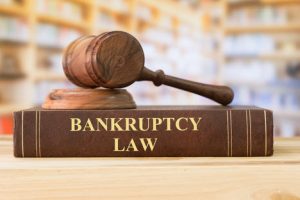Why Do People File Bankruptcy In Illinois?

Over half of Illinoisans struggle with financial problems, and for a substantial number of these people, the issues cause them to worry more than three hours a week, significantly affecting their ability to function at work and at home.
Bankruptcy provides both short and long-term relief from these stresses. Immediately after the consumer files a voluntary petition, an automatic stay goes into effect, in most cases. Under Section 362 of the Bankruptcy Code, moneylenders may not take any adverse action against debtors, from collection calls to foreclosure, without special permission from the bankruptcy judge.
Shortly after the automatic stay goes into effect, most of the debtor’s unsecured debts are discharged. “Unsecured debts” are promise-to-pay obligations, like credit cards, medical bills, most government loans, and even some past-due income taxes.
What Causes Bankruptcy in Illinois?
Although the extent of the financial problems that Chicago residents face may vary, the root of these problems is usually very much the same. Most people who have financial problems race them to one of the following:
- Illness/Injury: Most people lack the means to pay these emergency obligations in cash, and medical inflation has consistently outpaced regular inflation over the past several decades. The end result is often bankruptcy.
- Divorce/Separation: These events also create unexpected expenses, such as attorneys’ fees and family support payments, that often cannot be postponed. Moreover, the division of households dilutes the family’s income while significantly increasing expenses.
- Credit Cards: Typically, credit card problems begin with one or two months of only minimum payments, and that soon becomes five or six months and a mound of unpayable debt.
As a rule of thumb, if you have more than $5,000 in unsecured debts or secured debt delinquency (“secured debts” include home mortgages and car loans), consumer bankruptcy is probably an option, because it is almost impossible to pay down that debt without dealing with adverse action from moneylenders.
Legal Debt Relief Options in Chicago
Most people who have issues with unsecured debt file Chapter 7. About six weeks after the voluntary petition is filed, a trustee (person who oversees the bankruptcy for the judge) ensures that all the paperwork is in order. About six months later, the judge discharges all dischargeable debts.
People who struggle with secured debt usually opt for Chapter 13. This form of bankruptcy gives debtors up to five years to erase delinquency on their secured debts. During this time, the moneylenders may not take any adverse action, such as repossession or foreclosure, in most cases. Furthermore, instead of just checking paperwork, the trustee puts the debtor on an allowance, so any extra money goes to catch up on past-due secured debt.
Some people file a test-the-water Chapter 20 bankruptcy, especially if they are extremely far behind on their secured debts. If the Chapter 13 debt consolidation payment turns out to be too much, the debtor can voluntarily convert the case to a Chapter 7.
Reach Out to Savvy Attorneys
Bankruptcy is often the best way out of financial problems. For a free consultation with an experienced bankruptcy attorney in Chicago, contact the Bentz Holguin Law Firm, LLC. Convenient payment plans are available.
Resource:
moneyhabitudes.com/financial-statistics/


